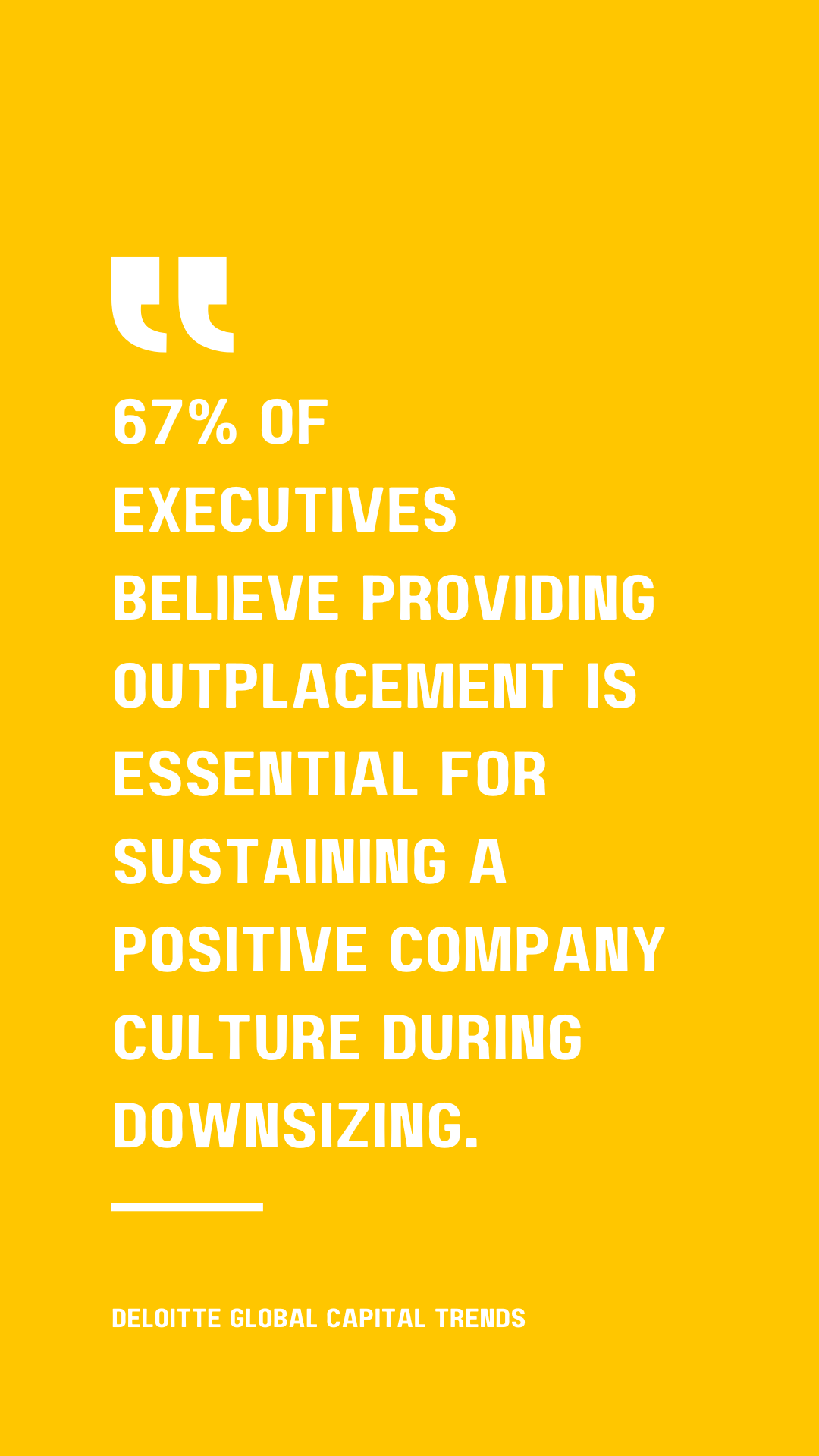Outplacement Definition: A Fresh Look at What It Really Means
You might be here because you’re curious about what outplacement services really mean, or maybe you’re trying to brush up on ways to support your workforce.
No matter where you’re coming from, I promise you’ll walk away with a clearer understanding of outplacement and how it can empower employees in transition.
Let me introduce myself: My name is Reid, the voice behind ShiftAgain, a career transition and outplacement service specifically tailored for hourly and entry-level employees.
My mission? To help you and your team navigate professional changes with confidence, compassion, and a dash of optimism.
Outplacement Definition
You’ve probably heard terms like “outplacement,” “career transition,” or “career coaching” floating around HR circles. But put simply, outplacement is the structured support an organization provides to employees who are leaving the company - whether due to layoffs, restructuring, or other reasons.
If you’re an HR professional or employer, you know these transitions aren’t always easy. Outplacement steps in to offer departing employees practical guidance, emotional support, and resources that equip them for a fresh start.
Yet, this isn’t just a transactional service. It’s a testament to how much an employer values its people - even when they’re on their way out.
By investing in outplacement, companies can protect their brand reputation, maintain morale among remaining staff, and give transitioning employees a meaningful shot at success.
Understanding the Core Purpose of Outplacement
If someone asked me to define outplacement, I’d describe it as a structured, compassionate bridge guiding an employee from a role that’s ending to one that’s just beginning.
The primary goal is to provide departing employees with the tools and support they need to land on their feet quickly and confidently. This often includes:
Career Coaching – Personalized guidance on job search strategies, résumé enhancements, and interview preparation.
Networking Assistance – Tips and platforms to help connect with potential employers or peers in relevant fields.
Career Resources – Access to training programs, tech-enabled development tools, and other opportunities that help individuals pivot effectively into their next career step.
You may hear it called “Career Transition Support,” “Employee Transition Services,” or “Separation Support Programs,” but the purpose remains the same: to ensure a smooth exit from the current organization and a confident stride into a new chapter of professional life.
What Does Outplacement Services Mean for Your Organization?
As an employer or HR representative, you might wonder how outplacement services can directly impact your workplace and overall brand. One immediate benefit lies in brand reputation.
By offering this service, you demonstrate that you care about your workforce at every stage of employment, including when roles come to an end. This helps position you as a people-centric organization in the eyes of current staff, potential hires, and the broader community.
Outplacement also has a profound effect on employee well-being. Career coaching and emotional support provide a sense of stability, even for employees facing an unexpected job change. It can turn a daunting transition into a stepping stone toward new opportunities.
With empathetic guidance, individuals are more likely to stay motivated and maintain a positive outlook, which in turn can reflect well on your company’s culture of care.
In addition to bolstering your brand and supporting individuals, outplacement offers legal and practical benefits.
Employees who feel backed by their former employer are generally less inclined to escalate disputes, reducing the risk of contentious departures. By structuring an outplacement program that addresses both career and emotional needs, you foster a more amicable separation process and preserve goodwill on both sides.
Finally, remember that outplacement isn’t just about those leaving; it also helps maintain morale among remaining staff. Layoffs or terminations can create anxiety among the team members who stay.
Showing that you provide meaningful support (even when parting ways) reassures everyone that your organization values people, regardless of their employment status. This sense of security can alleviate tension, foster loyalty, and help your workforce move forward together.
Recap/Closing of the Outplacement Definition
I hope this short exploration of an Outplacement Definition has given you fresh insights and a spark of inspiration. We’ve covered what outplacement is, how synonyms can help you spot similar services, and why it all matters to your organization.
From my experience, a well-executed outplacement program transforms uncertainty into optimism, helping people land on their feet in ways they might never have imagined.
If there’s one takeaway I’d love for you to have, it’s this: outplacement is far more than a corporate formality. It’s an investment in people. It’s a clear statement that you value your workforce - even when parting ways.
If you ever have questions or simply want to brainstorm ways to support your hourly and entry-level employees, you know where to find me.
Until next time, keep pushing forward and remember: every transition can be a stepping stone toward a brighter future.
Say Hello to PruE.ai: Your Personal Career Companion
Looking for guidance in today’s fast-changing job market? PruE.ai offers real-time résumé feedback, targeted job matching, and invaluable coaching tips. Check out the video below to see how our AI tool can support every step of your career journey.
Tags: outplacement synonym, define outplacement, outplacement definition, outplacement services meaning, what does outplacement mean, what does outplacement services mean
Author: Reid Alexander
Disclaimer: This content is for informational purposes only & not intended as professional legal or HR advice. Consult with qualified professionals for advice tailored to your specific situation. The author & publisher disclaim any liability for errors, omissions, or actions taken based on this content.


